“My house my rules” is understandable in theory, but it can be pretty hard to put into practice. Boundaries are easy to think of, but enforcing them, particularly around family, is another story entirely. So if family members end up completely disregarding your rules and expectations, this can create an uncomfortable situation all around.
A man asked the internet if he was wrong to want to ban his SIL and her iPad child from their home when she refused to keep her unruly kid in check. We reached out to the man who shared the post via private message and will update the article when he gets back to us.
Someone ignoring house rules is a valid reason to not let them stay over

Image credits: photoroyalty / freepik (not the actual photo)
But one man ended up in an argument with his partner over his SIL and her kid spending the night
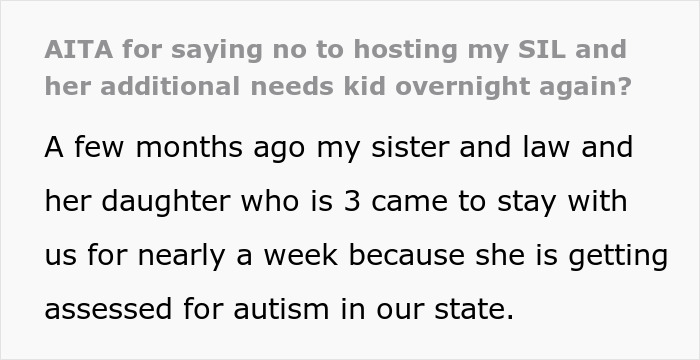


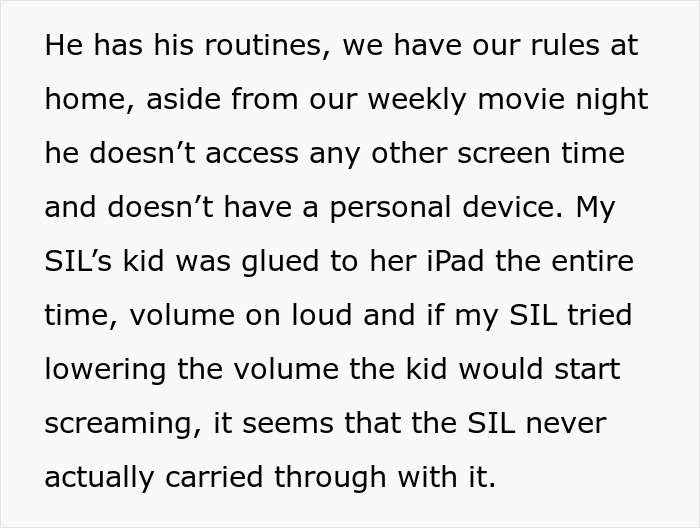



Image credits: dotshock / freepik (not the actual photo)
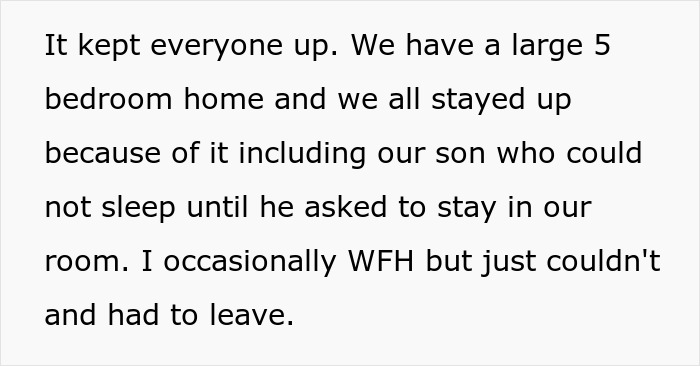



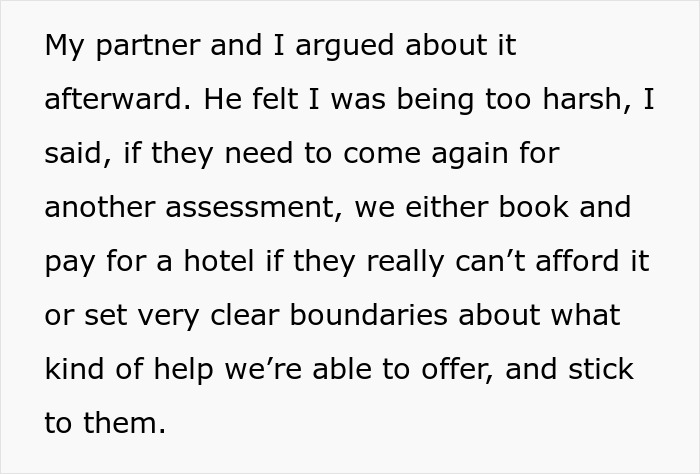
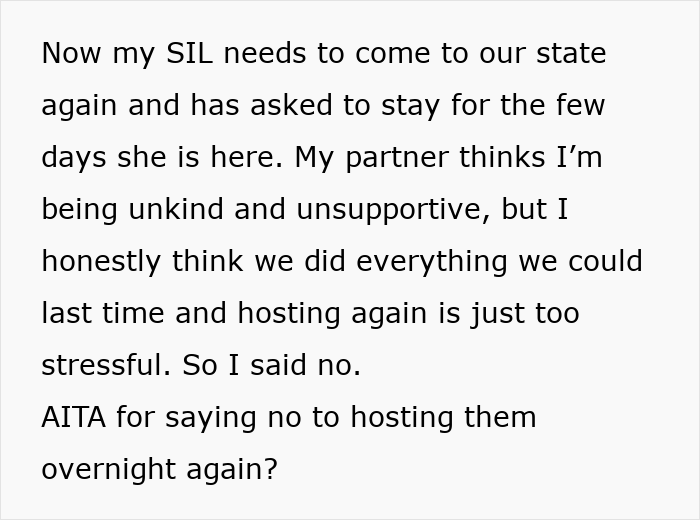
Image credits: charliestownMA
Keeping boundaries at home is ultimately healthy

Image credits: dragonimages / freepik (not the actual photo)
“My house, my rules” is not only a marketing slogan, it’s a necessary line that preserves respect, safety, and harmony in your home. If friends or relatives visit, they are in your space, so it is only logical that you have the right to expect people to follow the rules that you impose. This is especially true when there are children: noisy children can quickly spoil the atmosphere of your home, break things, or even be dangerous. By announcing “my house, my rules,” you establish expectations in advance, reducing misunderstandings and conflict potential. There is and perhaps has always been a conflict between the rights of the host and the rights of the guest.
Your house thus becomes an extension of your values and habits. Maybe you put breakables on low shelves, have a no-shoes rule to preserve clean carpets, or require windows not to be opened for the dog’s sake. If visiting children tear through, jump on couches, or experiment with every fragile knickknack, those habits and safety measures disintegrate. In this story, the man attempted to use the SIL’s parenting “style” as a learning moment for his own child, but it also seems like disrupting his sleep and work is really just too much.
Similarly, establishing rules protects property and relationships. A harried child might grab an expensive-looking vase or spill juice on a cherished rug. Instead of reacting in anger later, a simple rule, “Ask first before touching breakable things”, respects your stuff and teaches kids to be aware of their environment. When parents enforce these rules, they are showing respect for your house. If kids ignore rules and break items, not only does it stress out your stuff, but it also stresses your relationship. “My house, my rules” is not about being bossy; it’s about preventing unnecessary arguments. Unfortunately, it seems the sister is unable or, worse, unwilling to do anything about it.
There are good reasons why people have rules at home

Image credits: bearfotos / freepik (not the actual photo)
Explicit expectations create safety. Unattended children can crawl on tables, yank plugs out of receptacles, or race around tight corners, catastrophes in the making. By establishing explicit rules like “Remain in the living room unless accompanied by an adult” or “No jumping on the couch,” you limit the chances of harm. Parents who work together with these rules guarantee their children are safe. If those rules are not followed, you risk having to step in during mid‐crisis, not exactly a setting conducive to goodwill or trust.
Imposing discipline at home teaches responsibility. When children know they are going to have to follow your rules, because you, the homeowner, get to decide the rules, they understand that visiting someone’s home means responsibility. It’s a practical lesson: just because they would not be crazy in your friend’s home, they should not be in yours. This lesson does carry over into other social areas, teaching respectful behavior beyond just family functions.
Finally, honoring “my house, my rules” keeps hospitality in its original essence. An inviting home does not mean it is blind to mess. Instead, it has stiff regulations so guests are aware of where they are. When children and adults respect those boundaries, visits are simpler and more enjoyable. Parents can relax, knowing there are rules, homeowners can spend their time enjoying quality time rather than policing every move.
This is ultimately the crux of this disagreement, should one partner’s house rules take precedence over the other partner’s desire to help out his sister. As many of the commenters note, just paying for their hotel room is probably a much better bet, since it’s still “helpful” without all the additional drama.
He gave some more details in the comments
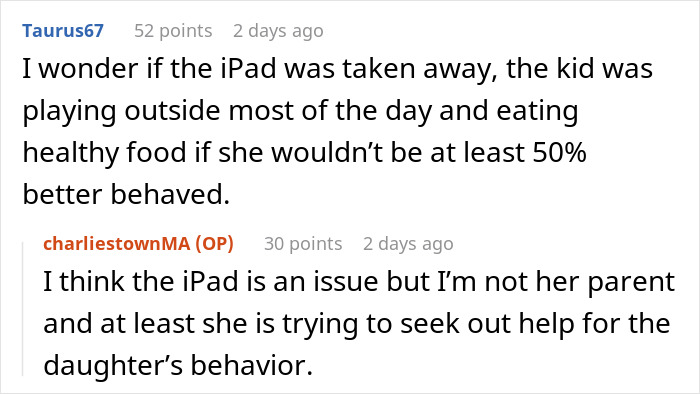


Most saw his point of view
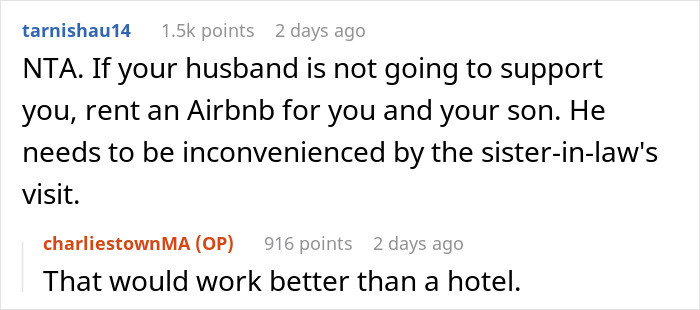


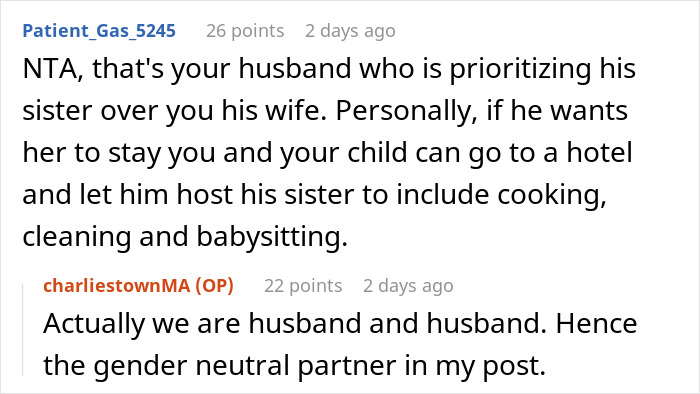

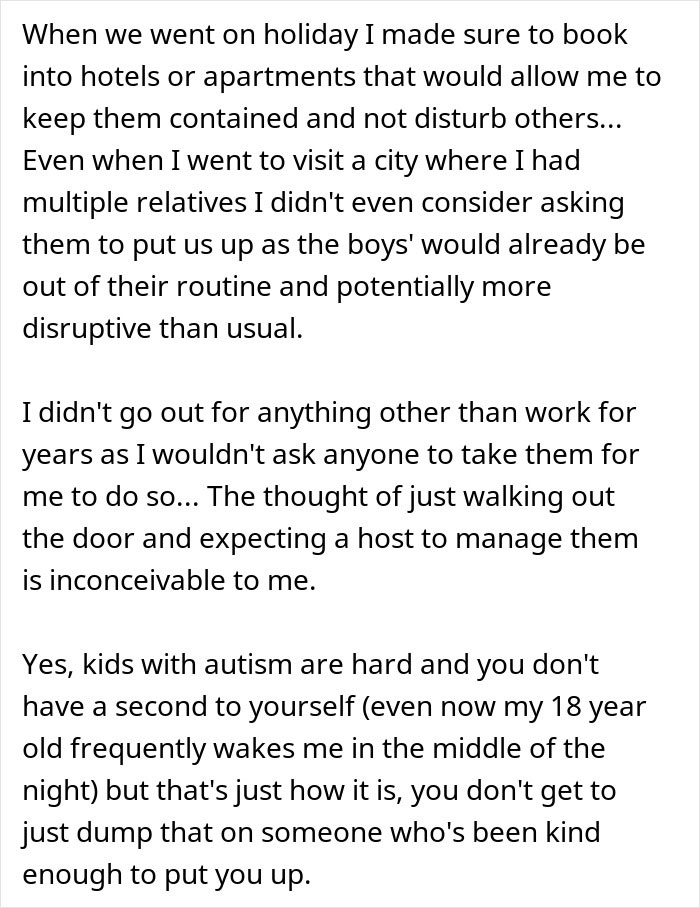
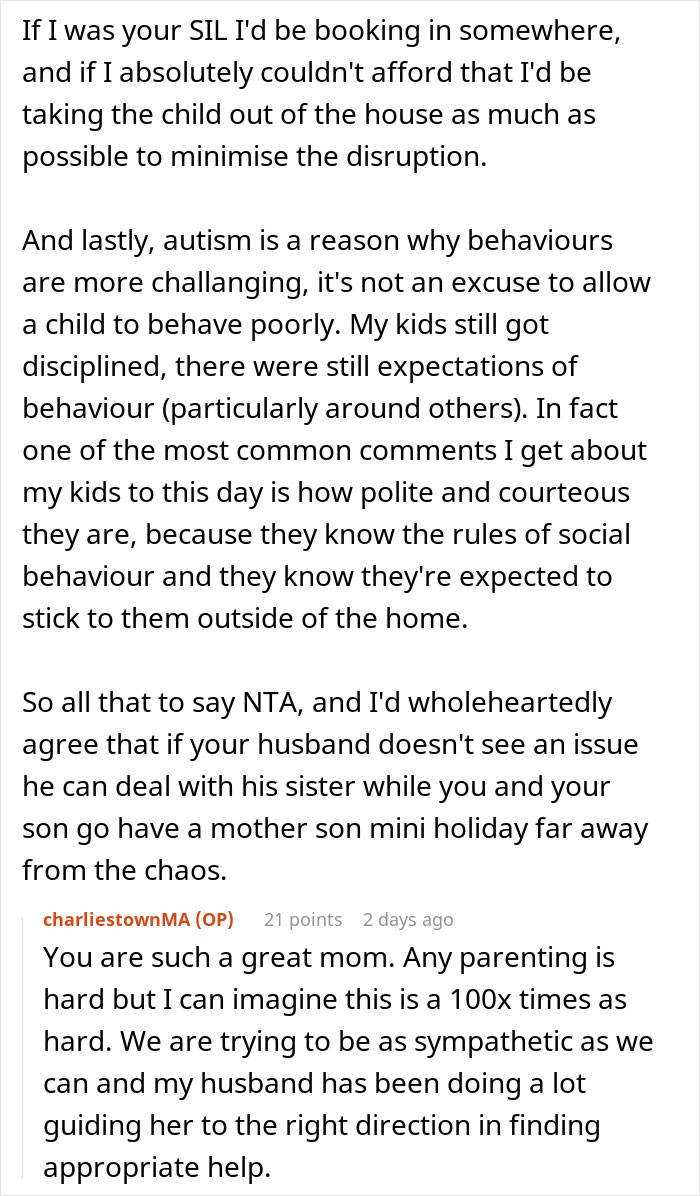


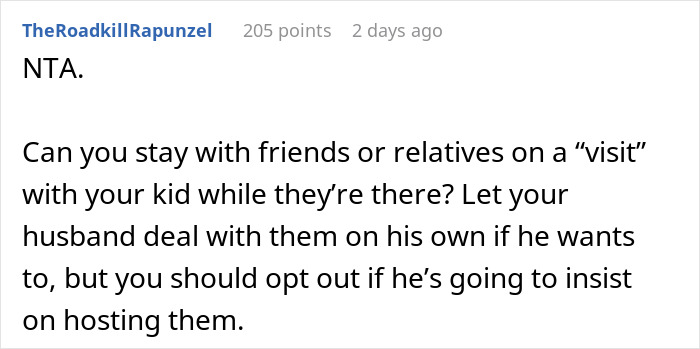
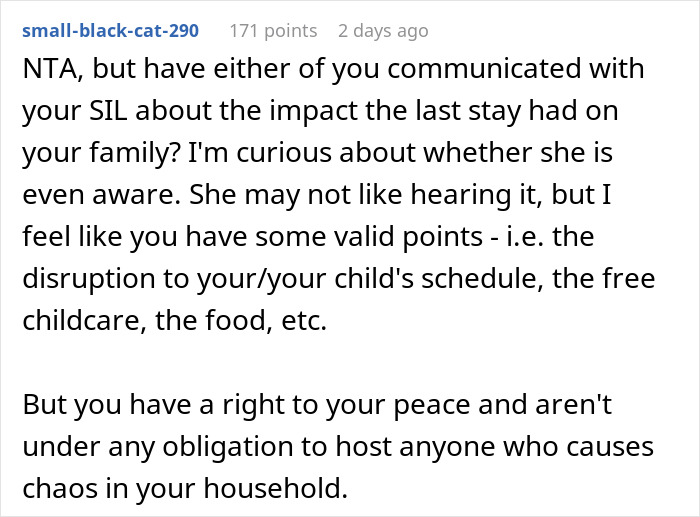






A few thought he was being too harsh




Some readers thought that no one was ultimately “right”
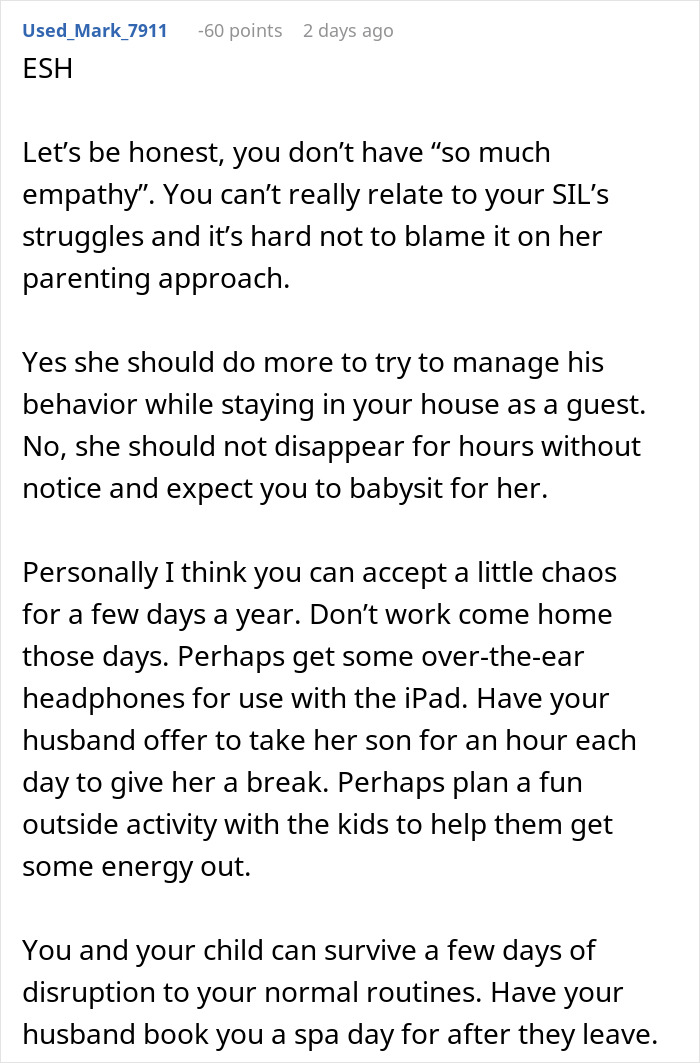
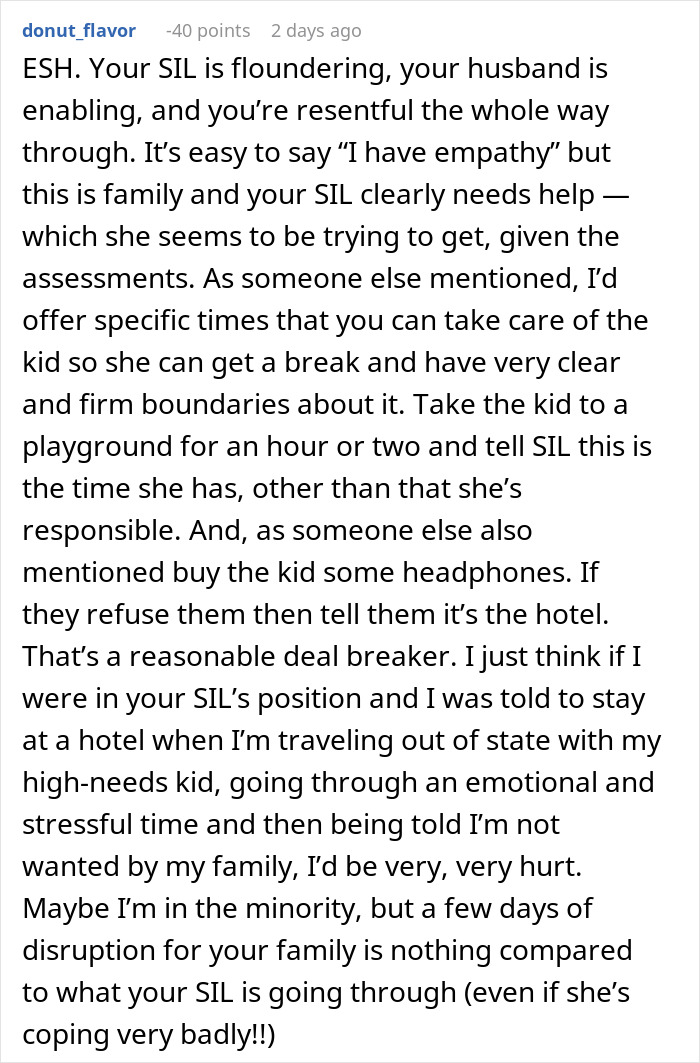

from Bored Panda https://ift.tt/GmY1uJq
via IFTTT source site : boredpanda